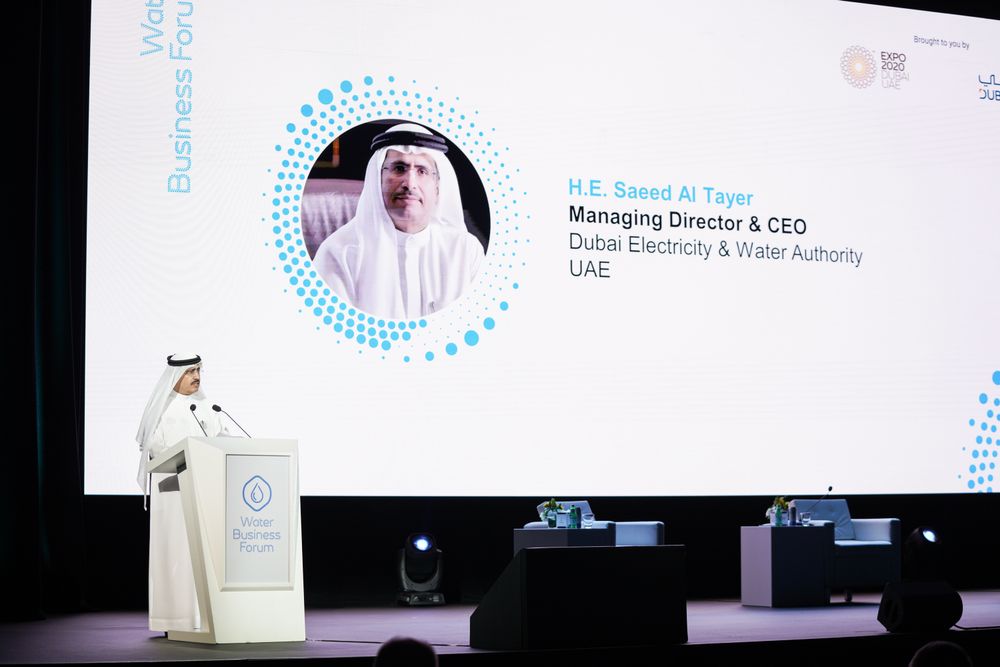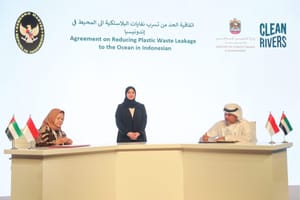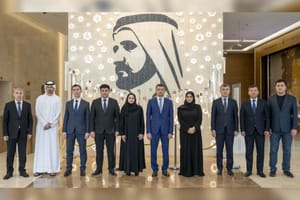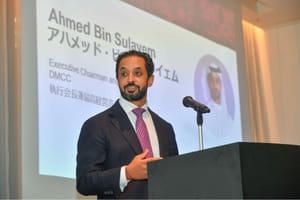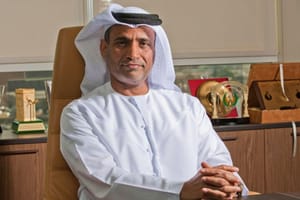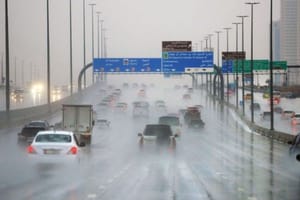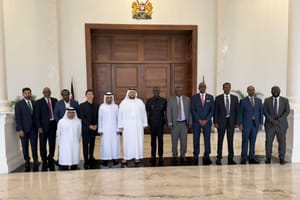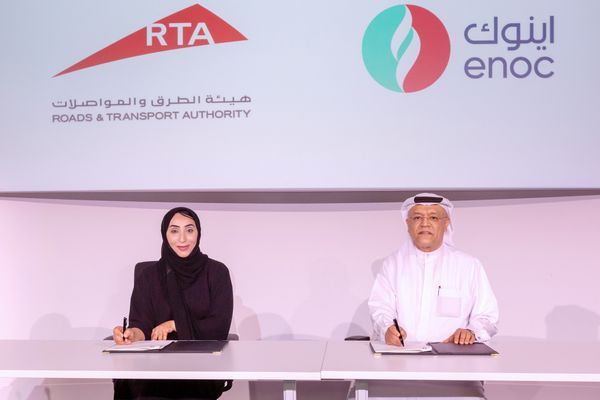HE Saeed Mohammed Al Tayer, MD & CEO of Dubai Electricity and Water Authority (DEWA), emphasised that DEWA’s advanced infrastructure and its use of innovation and sound scientific planning have enabled it to keep pace with the growing demand for water according to the highest standards of availability, reliability, and efficiency.
He noted that water security represents a global challenge due to the population and economic growth, and water scarcity affects 40% of the world’s population.
Al Tayer made these remarks in his speech during the Water Business Forum 2022. HE Suhail Al Mazrouei, Minister of Energy and Infrastructure; HE Hamad Buamim, President & CEO of Dubai Chambers and Chairman of the World Chambers Federation, as well specialists and experts in the water sector were present. The Forum with the theme ‘How will we protect our most precious resource today, for tomorrow?’ was organised by Expo 2020 Dubai and Dubai Chamber, in collaboration with the Ministry of Energy and Infrastructure and the Ministry of Environment and Climate Change, at Dubai Exhibition Centre - Expo 2020 Dubai.
“Water security is a national security issue for the UAE and is one of the seven strategic sectors of the National Innovation Strategy. In line with the UN Sustainable Development Goals (SGDs) 2030 to ensure access to water for all, the UAE Water Security Strategy 2036 aims to ensure sustainable access to water during both normal and emergency conditions as well as address future water security challenges in the long run. The UAE faces water-related challenges such as the scarcity of fresh natural water resources, the depletion of groundwater, and the high demand for water. Our wise leadership attaches great importance to preserving water, its sensible use, and security. Dubai has a comprehensive approach to ensure the sustainability of water resources in line with the Dubai Integrated Water Resource Management Strategy 2030, which focuses on enhancing water resources, rationalising water consumption, and using cutting-edge technologies and innovative solutions. It also includes reducing water consumption in accordance with the Demand Side Management Strategy to reduce consumption of electricity and water by 30% by 2030,”
Al Tayer explained that DEWA adopts three pillars to ensure the sustainability of water production. These are based on using clean solar power to desalinate seawater using Reverse Osmosis (RO) technology, which uses less energy. Excess water is stored in aquifers and pumped back into the water network when needed. This integrated innovative model protects the environment and is a sustainable economic solution. It also emphasises Dubai’s ability to anticipate and shape the future. When completed by 2025, the Aquifer Strategic Reserve (ASR) project can store up to 6,000 million imperial gallons of water as a strategic reserve. This makes it the largest ASR of its kind in the world to store potable water and retrieve it in case of an emergency. This will secure the Emirate with an additional source of potable water strategic reserve of 50MIGD for 90 days in emergencies, while ensuring the quality of the stored water.
DEWA conducted a study to improve water production, and analysed the economic and technical feasibility of replacing Multi-Stage Flash (MSF) desalination technology with solar-powered Reverse Osmosis (RO) technology to produce water using cheap and clean energy. By 2030, our RO production capacity will expand to 305 million imperial gallons of desalinated water per day, increasing the total desalinated water production capacity to 730 million gallons of desalinated water per day by 2030, when according to our plans, 100% of desalinated water will be produced by a mix of clean energy that uses both renewable energy and waste heat. This will allow Dubai to exceed global targets for using clean energy to desalinate water. Increasing the operational efficiency in decoupling desalination from electricity production will save around AED 13 billion and reduce 44 million tonnes of carbon emissions by 2030.
“Thanks to its advanced infrastructure, the use of innovation and sound scientific planning, DEWA keeps pace with the growing demand for water. In 1992, DEWA’s production capacity of desalinated water was 65 MIGD. Today it has increased to 490 MIGD. DEWA’s R&D efforts and use of the latest global technologies reduced losses in its water transmission and distribution networks from more than 42% in 1988 to 5.3% in 2021. This is one of the lowest worldwide. DEWA continues its water connection projects with the related concerned entities. DEWA is collaborating with Abu Dhabi Transmission and Dispatch Company (Transco) and Etihad for Electricity and Water to implement water connection projects to enhance water supply in emergencies or other cases. The projects with Transco will exchange big water quantities in both directions through water interconnections,”
“With the directives of the wise leadership, we will continue to develop unique experiences that make Dubai a global model for clean energy, water, and green economy as well as innovating proactive solutions to the challenges of the next 50 years. This achieves the vision of the wise leadership to make the UAE the world’s leading nation by its Centennial in 2071,”
News Source: Dubai Media Office
